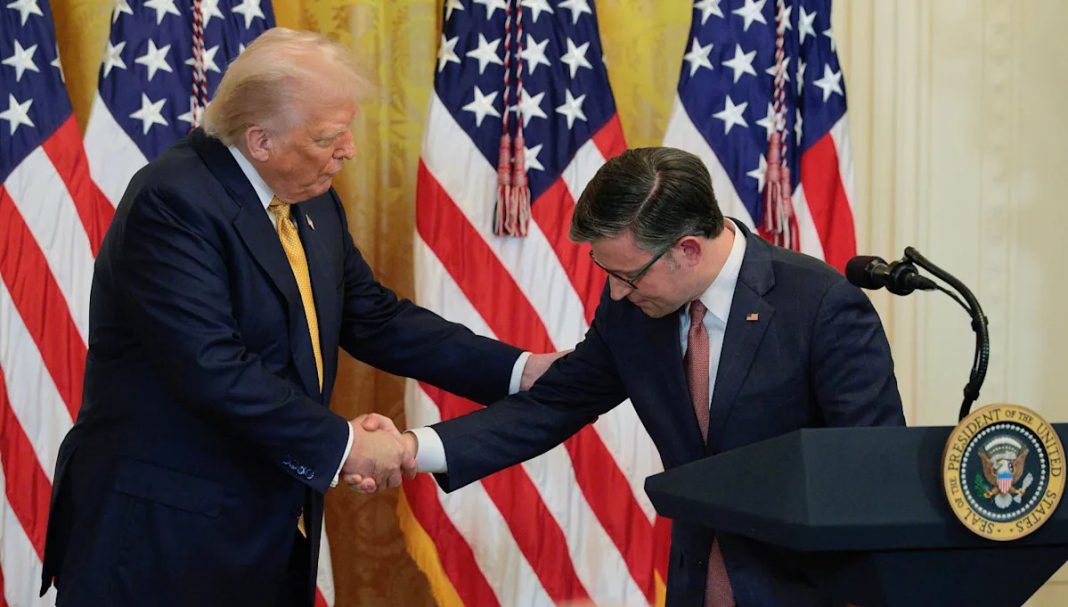It’s been a few days since Donald Trump announced he’s deploying National Guard troops to D.C. streets and placing local police officers under federal control, though the president’s latest dramatic power grab came with a catch: It has to be temporary.
Under existing law, if the White House intends to keep this unnecessary takeover going beyond 30 days, the president needs congressional approval.
And while Trump has already indicated that he’s prepared to seek an extension on his new policy, as Politico reported, that’s apparently not the only thing on his mind.
President Donald Trump on Wednesday suggested that he could avoid congressional approval to extend his 30-day federal takeover of Washington’s police, amid his efforts to wrest control of the capital’s law enforcement. … [D]uring his speech announcing the 2025 Kennedy Center honorees on Wednesday, Trump repeatedly floated circumventing Congress to maintain his hold over the city’s law enforcement.
The president specifically declared his belief that he can act “without Congress” if there’s “a national emergency.”
The Republican doesn’t “want to call a national emergency,” but he will if he decides he has to.
I don’t pretend to know what will happen, but given recent events, it’s very easy to believe that if Trump circumvents Congress on this issue, Republicans won’t much care — because they never do.
Lawmakers are, for example, supposed to be steering the nation’s policies on trade and tariffs. The president has instead decided to claim those powers for himself. Lawmakers are supposed to have the “power of the purse,” but when it comes to federal spending, Trump is concentrating that authority in the White House, too. Lawmakers are supposed to have the sole authority over confirming presidential nominees, but Trump and his team have even found ways to sidestep these powers.
In each of these instances, congressional Republicans — who’ve traditionally exercised some institutional pride and seen themselves as members of a co-equal branch — have cheered Trump on as he’s claimed their powers for himself.
It’s not that Trump dislikes lawmakers, per se (at least those in his own political party); it’s just that he sees them as an irrelevant afterthought who occasionally get in the way — until he goes around them, at which point GOP officials say, “Good job, Mr. President.”
I spoke to a Capitol Hill source earlier this year who said that the White House has started to see Congress as “a doormat.”
That was February. It’s worse now. Officials who’ve traditionally been among the most powerful figures in the nation are content to play the role of Trump’s backup dancers.
This has hardly gone unnoticed. “Republicans take a back seat as Trump steamrolls Congress with flurry of unilateral moves,” read an NBC News headline. “The GOP’s meek acquiescence to Trump’s power grabs,” read a Washington Post headline. “Trump Kicks Aside Congress With Sweeping Claims of Presidential Power,” read a Wall Street Journal headline. “Trump Kicks Congress to the Curb, With Little Protest From Republicans,” a New York Times headline read.
GOP leaders have probably seen some or all of these reports. They continue to take a cowardly and passive approach to their responsibilities anyway.
If you haven’t read the book “How Democracies Die” by Harvard professors Steven Levitsky and Daniel Ziblatt, their premise is that modern democracies generally don’t collapse at the hands of a military coup or an armed revolution. Rather, democracies break down gradually as public institutions and political norms are weakened from within, and people in positions of power make a choice to allow authoritarian figures to concentrate power.
It’s gutting to watch congressional Republicans follow that playbook to the letter.
This post updates our related earlier coverage.
This article was originally published on MSNBC.com

